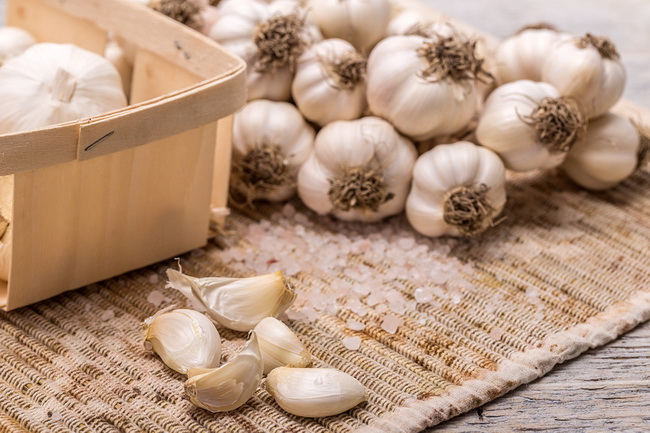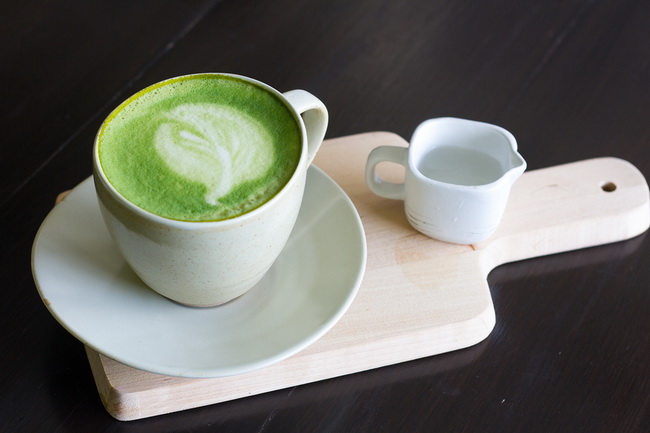- Make It Yourself Lavender Heart-Shaped Bath Bombs!
- 20 Things You Never Knew About “Down There”
- 12 Best Foods For Those Suffering From Arthritis Pain
- 12 Personal Hygiene Mistakes Almost Everyone Makes (Mom Never Told You About #4!)
- 15 Medicinal Plants And Herbs From The Cherokee People
- 12 Mind-Blowing Benefits Of Drinking Coconut Water During Pregnancy
- 12 Outstanding Winter Foods That Won’t Fatten You Up Like A Christmas Turkey
15 Ways to Eat Your Way to a Stronger Immune System

Photo credit: bigstock.com
Since half of your immune system is found in your digestive tract, it only makes sense that what you eat can directly, and dramatically, influence your health.
Your digestive system breaks down and absorbs the nutrients from the foods we eat. These nutrients can then be used by the body to protect it from illnesses.
It’s easy to see how failing to watch what you eat and drink can affect your body and allow toxins to build up or bacteria to pass through.
When your immune system is overworked, or doesn’t get the support it needs, your health can suffer as a result.
This doesn’t mean that food is everything. You can eat all the right things but drink tons of alcohol, not get enough sleep, and be a virtual slave to your job, and your immune system will be ruined all the same.
The good news here is that there is a world of bacteria that lives inside your digestive system, doing everything from digesting food to breaking down fat to extracting the nutrients in your food so that they can make hormones or for improving and supporting the immune system.
When the balance of bacteria in your digestive system gets out of whack and the bad bacteria outnumber the good, then a condition called dysbiosis can happen. Dysbiosis is associated with increased gut permeability and overall poor digestion. This results in numerous gut problems including bloating, gas, acid reflux, indigestion, diarrhea, and heartburn. Dysbiosis is also connected to an increased susceptibility to allergies, infections, and inflammatory disorders.
You can literally eat your way to a better immune system. By providing your body with the proper foods that help it to keep your gut bacteria in the proper balance, you can improve the immune system function and help to keep your body strong and disease free.
Keep reading and find out which foods you should be eating more of to help keep the doctor away and keep yourself healthy for work or play.
Continue to Page 2

Photo credit: bigstock.com
1. Prebiotic Foods
In order for good bacteria to thrive, you need to give them prebiotic foods. These are non-digestible fibers that help good bacteria stick to the body and stimulate their growth. You might want to think of prebiotics as a type of nest that provides the good bacteria a place to hold onto and grow. Prebiotics foods include foods like bananas, whole oats, green vegetables, barley, tomatoes, garlic, flaxseeds, and legumes.
2. Probiotics
These foods are loaded with the healthy bacteria that you want growing in your gut. Probiotic foods include yogurt with live bacteria, kefir, miso, olives, natto, sauerkraut, tempeh, and pickles. Fermented foods are full with healthy probiotics that will load up your gut with good bacteria.
3. Selenium
Some studies have shown that people with low levels of selenium are at a greater risk for developing certain types of cancer, such as breast, colon, lung, and prostate cancer. Brazil nuts are one of the best sources of selenium. Just one Brazil nut daily will give you all the selenium you need. If these nuts aren’t your favorite, you can also get selenium in chia seeds, pinto or lima beans, or sunflower seeds.
Continue to Page 3

Photo credit: bigstock.com
4. Vitamin A
Researchers and scientists have long known that vitamin A plays an important role in fighting infections. A deficiency in this vitamin is linked to an impaired immune system and the increased risk of infectious disease. You will find vitamin A in leafy green vegetables, orange and yellow vegetables, as well as milk and eggs.
5. Vitamin D
Doctors have known for many years that those afflicted with tuberculosis have responded well to simply sunlight exposure. Vitamin D signals an antimicrobial response to bacteria. Work yourself up to getting a minimum of 30 minutes of natural sunlight exposure every day. If you live in an area where there is little sunlight or if you have very dark skin, you might want to consider taking a vitamin D supplement.
6. Zinc
This is a trace element that strengthens the immune system. A deficiency in zinc can affect the ability of T cells and other immune system cells to function properly. It’s important not to consume too much zinc as it can have the opposite effect on your immune system. You need about 15 to 25mg of zinc each day to support your immune system, but no more than that. You will find zinc in sesame seeds, pumpkin seeds, peanuts, cheese, oysters, and liver. Read more about natural ways to increase zinc.
Continue to Page 4

Photo credit: bigstock.com
7. Garlic
In lab tests, researchers have found that garlic can improve the overall function of the immune system. One large study done over a 12 week period found that those who consumed fresh garlic on a daily basis reduced the number of colds by 63 percent when compared to the placebo group. Garlic works best when consumed fresh. Crush or cut one or two cloves each day, then wait 10 to 15 minutes for the compounds to become active. You can then use the garlic as you like.
8. Whey Protein
High quality whey protein from grass fed cows can help to improve the immune system and fight off cold and flu viruses because it contains immunoglobulins and beat-glucans, which protect the immune system while it supports your body’s natural detoxification system.
9. Coconuts and Coconut Oil
Coconut oil and coconuts are excellent for your thyroid, metabolism, and immune system. Rich in lauric acid, your body will convert this substance into monolaurin. Monolaurin is the substance found in human breast milk that strengthens the immune system of the child. There has been a great deal of research in the area of immunity and lauric acid. Coconut oil is a medium chain fatty acid which disrupts the lipid membranes of bacteria and pathogens, stopping them from infecting your body. Always choose virgin, organic coconut oil and coconut products.
Continue to Page 5

Photo credit: bigstock.com
10. Raspberries and Blueberries
Although all berries are high in antioxidants and vitamin C, blueberries and raspberries rate right up at the top of the scale. Wild blueberries, in particular, are powerful immune system boosters. These berries contain strong phytochemicals, such as anthocyanin, which support the immune system process.
11. Tulsi
Sometimes called Holy Basil, this is an herb that has been used for thousands of years in India. Drinking tulsi tea will fill your body with healthy antioxidants, support your brain, heart, vision, and, of course, your immune system.
12. Propolis
This compound comes to us from bees and is one of the most broad-spectrum antimicrobial compounds that can be found in nature. Propolis is the richest source of apigenin and caffeic acid, two phenolic compounds that help the body with its immune response.
Continue to Page 6

Photo credit: bigstock.com
13. Green Tea and Matcha Tea
Matcha tea is the best kind of green tea, loaded with nutrients, and found in a powder form, not leaves, completely unfermented. The best types of Matcha tea are the ones that are grown in Japan. Matcha tea has up to 17 times the antioxidants of blueberries.
All green teas are rich in natural chemicals calledcatechins. Green tea has been found in several studies to be as much as 100 times more potent than the antioxidants vitamins E and C.
14. Chlorella
This nearly perfect freshwater algae is a potent detoxification agent that binds to heavy metals, such as mercury, and then removes them from your system. It’s the chlorophyll in these algae that makes this such as powerful detoxing agent. Chlorella will purify the blood and stimulates the repair and growth of tissues. When your body is not bogged down with toxins and heavy metals, your immune system can focus on other tasks.
SEE ALSO: Top 12 Natural Ways to Improve Your Kid’s Immune System
15. Mushrooms
Believe it or not, mushrooms take up a large part of the earth’s surface. Just one cubic inch of soil can have as many as 8 miles’ worth of mushroom spores! Mushrooms contain compounds called beta-glucans, which have long been used for their immune improving properties. Reishi, Maitake, and Shiitake are perhaps the most powerful of all mushrooms when it comes to supporting the immune system.
By incorporating some of these gut friendly, immune supporting foods into your diet, you can not only avoid circulating viruses and bacteria, but improve your longevity and overall health at the same time. Who doesn’t want that?!
References:
































